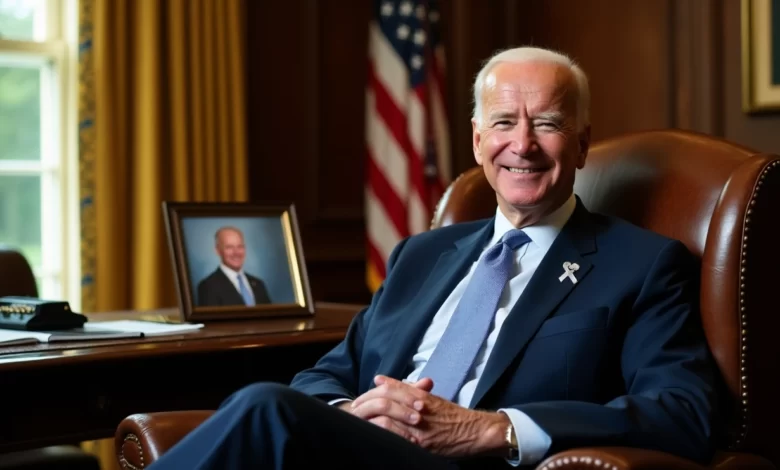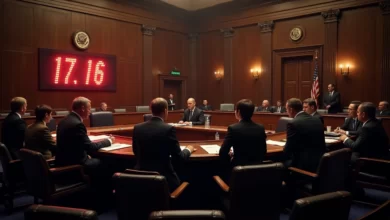Why President Biden’s Cancer

Why President Biden’s Cancer Diagnosis Sparked Global Well Wishes
Well wishes from across the political spectrum flooded in when President Joe Biden was diagnosed with aggressive and advanced prostate cancer. The president’s Gleason score of 9 indicates a high likelihood of rapid growth and spread, highlighting the seriousness of his condition.
Despite political differences, prominent figures including President Trump, former President Obama, and House Speaker Mike Johnson showed their support. In fact, this bipartisan concern reflects the sobering reality that prostate cancer affects approximately 12.9% of men during their lifetime, with an estimated 313,780 new cases diagnosed in 2023 alone. The outpouring of get well wishes after surgery demonstrates how a health crisis can temporarily transcend political divides.
We’ll explore Biden’s history of resilience, examine what makes his diagnosis particularly serious, and analyze the public and political reactions that followed this significant health announcement.
Biden’s Long History of Resilience
President Biden’s battle with cancer represents just the latest chapter in a life marked by extraordinary resilience. Throughout his decades in public service, Biden has faced and overcome numerous personal tragedies and health challenges that have shaped his character and leadership style.
The President’s relationship with adversity began early. At just 29 years old, shortly after winning his first Senate race in 1972, Biden received devastating news that his wife Neilia and infant daughter Naomi had been killed in a car accident. His sons Beau and Hunter survived but were seriously injured. Rather than abandoning his Senate seat, Biden took his oath of office at his sons’ hospital bedside—an early demonstration of his ability to persevere through unimaginable circumstances.
Health challenges have also been a recurring theme in Biden’s life. In 1988, he suffered two life-threatening brain aneurysms that required emergency surgery. Doctors later told him he had less than a 50% chance of surviving without permanent neurological damage. Nevertheless, Biden recovered fully and returned to his Senate duties after a seven-month recovery period.
This pattern continues with his current
Perhaps the most profound test of Biden’s resilience came in 2015 when his son Beau died from brain cancer at age 46. This loss temporarily derailed Biden’s political ambitions, causing him to forgo a presidential run in 2016. Yet he ultimately channeled this grief into renewed purpose, launching the Cancer Moonshot initiative and eventually returning to politics.
Biden’s capacity for resilience has fostered connections with Americans facing their own struggles. Following his previous surgeries, Biden received countless get well wishes from citizens who saw in him a model of perseverance. This pattern continues with his current cancer diagnosis.
Now, at 82, facing an aggressive prostate cancer diagnosis, Biden draws on these decades of experience overcoming adversity. His long history of bouncing back from personal and health setbacks suggests a temperament well-suited to handling this latest challenge with the same determination that has defined his life and career.
The Diagnosis: What Makes It So Serious
The gravity of President Biden’s diagnosis lies in two critical medical findings: a high Gleason score and bone metastasis. A Gleason score of 9 places Biden’s cancer in Grade Group 5, indicating highly abnormal cells that are likely to grow and spread quickly. This scoring system, ranging from 6 to 10, helps doctors determine how aggressive prostate cancer is—with 9 being among the most concerning.
Furthermore, Biden’s cancer has already metastasized to his bones, making his condition Stage IV or advanced prostate cancer. Bone is the most common site where prostate cancer spreads, with approximately 90% of men with advanced prostate cancer developing bone metastases. Once cancer reaches the bones, it cannot be cured, although treatment can extend life significantly.
Bone metastasis presents serious complications beyond the primary cancer. It can weaken bones, causing fractures, and lead to spinal cord compression if tumors press against the spine. Additionally, these metastases may cause severe pain and release excess calcium into the bloodstream, creating further health complications.
Prostate cancer with bone metastasis substantially impacts survival rates. According to studies, while 56% of men without bone metastases at diagnosis survive five years, only 3% of those with bone metastases at diagnosis reach this milestone.
Understanding the medical
However, there is some positive news in Biden’s case. His cancer appears to be hormone-sensitive, which allows for effective management through hormone therapy treatments that block testosterone production. These treatments can significantly slow cancer progression, sometimes for years.
Medical advances over the past decade have nearly tripled survival rates for patients with similar diagnoses. Modern treatment approaches, including newer hormonal therapies and chemotherapy, have shown impressive results in extending longevity.
The global outpouring of well wishes reflects both the seriousness of this diagnosis and recognition that even with advanced disease, patients often maintain good quality of life with proper treatment. Understanding the medical complexities has helped contextualize the get well wishes after surgery that continue to arrive from around the world.
Public and Political Reactions to the News
The announcement of President Biden’s cancer diagnosis prompted an extraordinary moment of unity across America’s typically divided political landscape. Political rivals and allies alike set aside differences to express genuine concern for the former president’s health.
President Donald Trump, despite years of political rivalry, was among the first to respond with compassion. “Melania and I are saddened to hear about Joe Biden’s recent medical diagnosis. We extend our warmest and best wishes to Jill and the family,” Trump posted on Truth Social, wishing Biden “a fast and successful recovery.”
Former Vice President Kamala Harris characterized Biden as “a fighter,” noting that he would “face this challenge with the same strength, resilience, and optimism that have always defined his life and leadership.” This sentiment was echoed by former President Barack Obama, who emphasized Biden’s personal connection to cancer advocacy: “Nobody has done more to find breakthrough treatments for cancer in all its forms than Joe.”
Marjorie Taylor Greene
Indeed, the bipartisan nature of these well wishes stood out as particularly noteworthy. Republican lawmakers including Senators Susan Collins, Thom Tillis, and even outspoken critics like Representative Marjorie Taylor Greene offered sincere expressions of support. “Cancer is truly awful,” wrote Greene, connecting through her personal experience of losing her father to cancer in 2021.
Former Secretary of State Hillary Clinton referenced Biden’s extensive work fighting cancer: “I’m thinking of the Bidens as they take on cancer, a disease they’ve done so much to try to spare other families from.”
Several responses acknowledged the timing’s poignancy, with Senator Chris Coons noting May 30 would mark the 10th anniversary of Beau Biden’s death from brain cancer.
Meghan McCain, whose father Senator John McCain died of cancer, perhaps best captured the mood: “Cancer is the absolute worst… I don’t believe times like these are appropriate for politics.” Her words reflected the overwhelming sentiment that Biden’s diagnosis transcended political boundaries, uniting Americans in hoping for his recovery.
political divides
President Biden’s cancer diagnosis demonstrates how health crises can transcend even the deepest political divides. Though his Gleason score of 9 and bone metastasis present serious challenges, modern medical advances offer hope where little existed previously. Furthermore, Biden’s remarkable history of resilience through personal tragedies and health scares suggests he approaches this battle with hard-earned perspective and determination.
The overwhelming response from political figures across the spectrum—from Donald Trump to Barack Obama, from Susan Collins to Meghan McCain—reveals a fundamental truth often forgotten in today’s polarized environment. Despite profound disagreements, most Americans still recognize our shared humanity when confronted with life’s most difficult challenges. Notably, this unified response mirrors Biden’s own career-long commitment to bipartisanship.
While statistics paint a sobering picture for Stage IV prostate cancer patients, Biden’s case benefits from hormone sensitivity and treatment options that have significantly improved survival rates over the past decade. Additionally, his personal connection to cancer advocacy through the Cancer Moonshot initiative and his experience with his son Beau’s battle adds another dimension to his fight.
Above all, this moment serves as a powerful reminder that behind political positions stand real people with families, health struggles, and personal journeys. Whether Biden’s diagnosis ultimately brings lasting change to America’s political climate remains uncertain. Nevertheless, the spontaneous outpouring of genuine concern across party lines offers a glimpse of what might be possible when we recognize our common humanity first. Though cancer may not discriminate based on political affiliation, neither, apparently, does compassion during times of genuine human struggle.
Show fa



